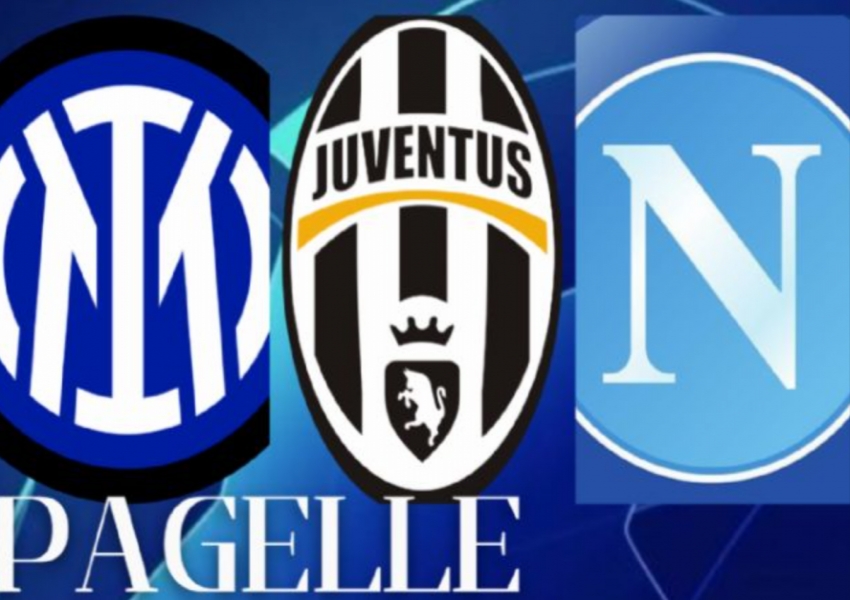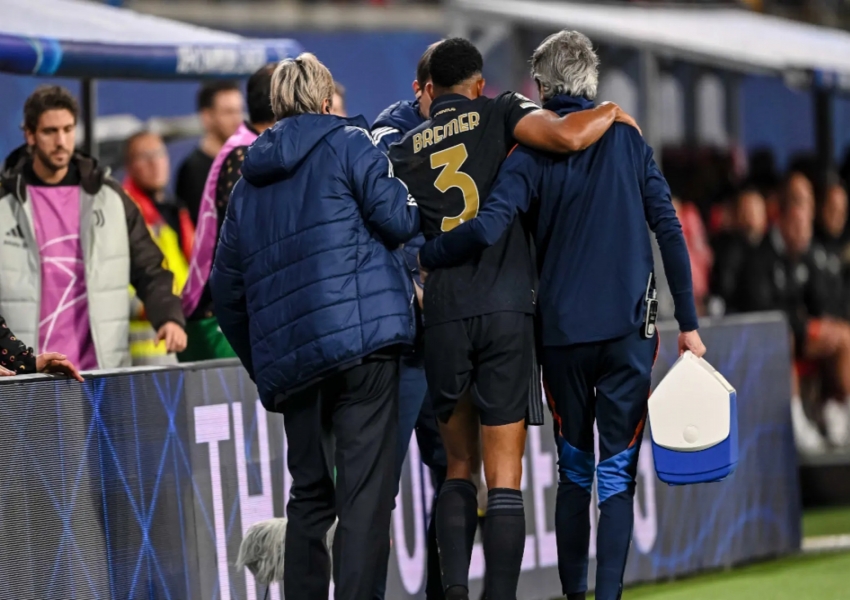Juventus' Injury Crisis and Emergency Plan Show the Way for Inter: New FIGC Ruling a Golden Opportunity
As Italy’s top clubs head into the international break, the media cycle around Inter Milan is once again dominated by the same old stories—recycled rumors about a new stadium, questionable transfer speculation, and other familiar headlines. While these stories often fail to bring fresh insight, one recent development in Turin has caught Inter’s attention. Juventus’ ongoing injury crisis has sparked significant media coverage, with the focus on how the club plans to navigate the rest of the season despite the growing list of absentees.

Turin-based media have been quick to note that Juventus has a viable emergency plan in place, even with a mounting injury toll. Center-back Bremer is sidelined for the season with a serious knee injury. Paul Pogba’s suspension has been reduced but he remains unavailable. Other injuries are concentrated in the midfield and wide areas, where Timothy Weah is struggling with an ankle problem, Teun Koopmeiners has a fractured bone, Vasilije Adzic is nursing a muscle injury, Nico Gonzalez has suffered a relapse of an old injury, and Arkadiusz Milik’s knee issue further complicates selection. Juventus coach Thiago Motta is short on options, but the club’s long-term planning may give them the edge in weathering the storm.

Adding to Juventus' woes is their growing tally of suspensions. The team’s aggressive playing style under Motta has seen them accumulate 16 disciplinary cards—far more than Napoli and Inter Milan, who have only nine each. By Serie A standards, a red card counts as three yellow cards, meaning Juventus is far more susceptible to suspension-related issues than their title rivals. The upcoming suspension of young talent Francesco Conceicao is just the latest blow to the club’s depth.

Faced with this injury crisis, Juventus has initiated a two-fold emergency plan. First, they are positioning themselves to be active in the winter transfer market. Local reports suggest that Juventus plans to prioritize defensive reinforcements, allocating a significant portion of their budget for the acquisition of a center-back. Meanwhile, the budget for attacking reinforcements appears more limited, which is why rumors of interest in PSG players have been circulating.
Second, and perhaps more crucially, Juventus is looking to its Juventus Next Gen (formerly Juventus U23) team for immediate solutions. Recent reports indicate that Motta’s coaching staff has been closely monitoring the reserve squad. Among the most likely candidates to be promoted to the first team is 20-year-old Dutch winger Livano Comenencia. Standing at 1.91 meters, Comenencia has incredible speed and originally played as a right-back. However, under Juventus Next Gen coach Paolo Montero, he has been successfully transitioned into a winger in their preferred 4-3-3 or 4-3-2-1 system. His performances this season have been impressive, and he has emerged as one of the most dangerous players in the Juventus reserve squad. His potential promotion to the first team would help fill the gaps caused by injuries and suspensions on the wings.
Juventus’ Next Gen squad has been a vital resource for the first team in recent years. Several key players have come through the system, and the club has also raised around €80 million in transfer fees from selling players developed in the reserve side, such as Samuel Iling, Koni De Winter, and Matias Soulé. The investment in Juventus’ second team is now paying dividends, both in terms of player development and financial returns. This should serve as a clear example for Inter Milan, whose lack of a second team has become a glaring weakness.
Inter Milan has so far failed to establish a second team, a decision that could increasingly leave them at a competitive disadvantage in the future. As Juventus continues to benefit from its Next Gen project, Inter risks falling behind unless they address this gap. Establishing a U23 team has been a topic of internal discussion at Inter, but several factors have prevented the project from moving forward. First, the initial investment required to build a second team is substantial, likely running into tens of millions of euros. Given Inter’s financial difficulties, particularly with their debt to Oaktree Capital, finding the funds to launch a second team has proven challenging. Second, if Inter were to start their second team in Serie C, the club would need to upgrade their training facilities and secure a suitable stadium, both of which require further financial commitments. Lastly, the limited number of available spots in Serie C has meant that even if Inter were ready to move forward, they would still have to wait in line for an opening.
However, the Italian Football Federation (FIGC) may soon make it easier for Inter to finally act. A recent report from the Italian national news agency ANSA highlighted potential reforms that could give Serie A clubs like Inter a golden opportunity to establish second teams. The proposed changes would allow clubs to enter their second teams into Serie D, the semi-professional fourth division, rather than Serie C. This would significantly lower the financial and infrastructural barriers for clubs looking to establish reserve squads. At the same time, the reforms would alter the promotion and relegation system for Serie C, meaning that even reserve teams from big clubs could be relegated if they do not perform.
The reforms have been designed with three primary goals in mind. First, they aim to make it easier for more Serie A teams to create second teams, thus lowering the financial and facility-based entry requirements. Second, the reforms seek to provide a pathway for children from low-income families and immigrant communities to access professional football through the semi-professional ranks. Finally, the FIGC hopes the changes will encourage youth development focused on creativity and individuality, moving away from the overly tactical emphasis that has stifled Italian football in recent years. Coaches at lower levels often stress tactics to children as young as 12, stifling the natural development of standout talents like Jamal Musiala or Lamine Yamal, who have thrived in countries with more free-flowing developmental systems.
In Italy, Serie D and Serie C may only differ by a single letter, but the two leagues are worlds apart. Serie D clubs are often semi-professional, and the division is less focused on tactical rigidity or financial muscle. It is a league where young players can express themselves and enjoy the game without the pressure of achieving immediate success. Serie C, on the other hand, is a fully professional division, where the stakes are much higher, and clubs are expected to meet stricter financial and infrastructural criteria. For Inter Milan, these reforms could be a major positive. If the new rules are passed, the club could begin building their second team in Serie D, avoiding the prohibitive costs of starting in Serie C. Over time, Inter could invest further in their second team, working towards eventual promotion to Serie C or even Serie B. The key is to act now—getting the project off the ground, even in a modest way, would be far better than continuing to delay.
Inter Milan finds itself at a crossroads. The club is undergoing a period of transformation, with rumors swirling of a potential change in majority ownership. In such uncertain times, it may be unrealistic to expect the club to commit to long-term strategic projects. However, if Inter can seize this opportunity to build a second team, it would be a decision with lasting positive effects. A well-functioning U23 team could provide the first team with crucial squad depth and future stars while also generating significant transfer revenue from player sales.
Juventus has shown how beneficial a second team can be, both on the pitch and in the balance sheets. The recent injury crisis and the club’s ability to turn to Juventus Next Gen for reinforcements should serve as a clear example for Inter. With the FIGC reforms potentially lowering the barriers to entry, now is the perfect time for Inter to follow suit and begin building for the future. If the club can rise to the challenge, this moment could go down in history as the turning point that enabled Inter Milan to remain competitive in the years to come.
Copyright Statement:
Author: mrfootballer
Source: Mrfootballer
The copyright of this article belongs to the author. Reproduction is not allowed without permission.
Recommended Blog
- J.League Cup Semifinals: Yokohama Marinos Embrace Cup Runs, Niigata Swan Faces a Chance for Redemption
- Serie A Penalty Crisis Explained: 32 Attempts, 10 Misses, and Inter's Stars as Positive Examples
- Inter’s Defenders Lead Serie A in Attacking Metrics: Italian Media Hails a Tactical Revolution
- Inter’s Sporting Director Scouting Three Monza Talents: Winter Moves Could Bolster Nerazzurri Strengths
- La Liga Round 9: Real Madrid Miss Their Aerial Threat as Mallorca’s Defense Gains Strength
- Why Inter Milan’s Defense Struggles in Serie A Compared to the Champions League: Inzaghi’s Plan to Reinforce the Backline
- Bundesliga Round 6: Augsburg’s Warm-Up Woes and Dortmund’s Champions League Firepower
- Pavard’s Evolution at Inter: Key Stats in Just Six Games Already Match His Entire 2022-23 Season – But Why Is He Left Out of the French Squad?
- Europa League Round 2: Lazio Shines on Two Fronts, While Can Ten Hag Save Himself at Manchester United?
- The Inter Milan Curva Nord Scandal: Money Over Loyalty, Distracting the Team Before the Champions League Final, With Zanetti Under Fire
Hot Blog
- Man City’s 21-Year-Old Star Returns Home as a Hero! Receives $350,000 Mercedes, Gifts It to His Father
- 175 Days on the Sidelines! Barça’s 32-Year-Old Guardian Dreams of a Champions League Comeback
- English Media: Manchester United Will Win Premier League Title in 2028! History Will Repeat Itself, Two Teams Serve as Inspirations
- 4 AM Showdown: Barcelona's Revenge Match! Win = 3-Point Lead Over Real Madrid, Key Players Rested
- 0-2 Double Defeat! China National Team Stuck at 6 Points: No More Direct World Cup Hopes, Two Crucial Matches Ahead
- China National Football Team Drops 13.6 Points, Slips to 94th in FIFA Rankings: Syria Overtakes, New 9-Year Low
- 0-0 Draw! Japan 12 Shots, 2 Missed One-on-Ones: 8 Matches, 20 Points, Group Winner, Saudi Arabia Stuck at 10 Points in 3rd
- 4-1, Double Win Over Brazil! Argentina Celebrates: World Cup Qualification Secured, 4th Team Globally to Qualify
- Real Madrid Got Lazy: 7 Kilometers Less Running in UCL! Two Superstar Spectators While Barça Outruns Them All
- Champions League Classic: Barça’s Midfield Maestro Worshipped by Thousands After 11.5KM Marathon